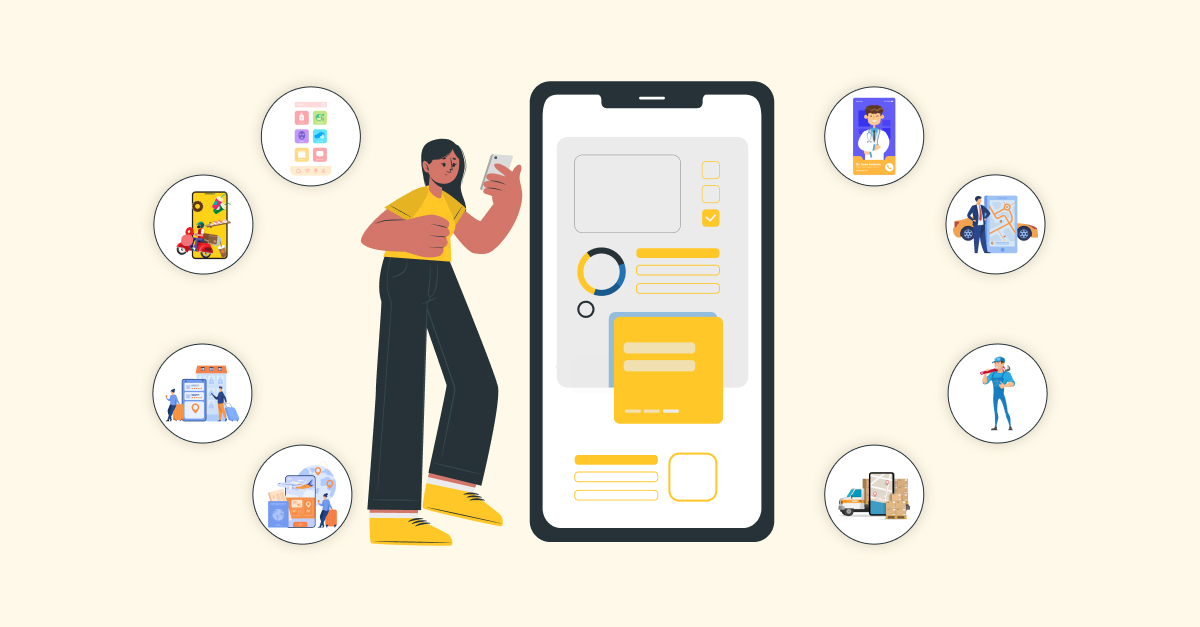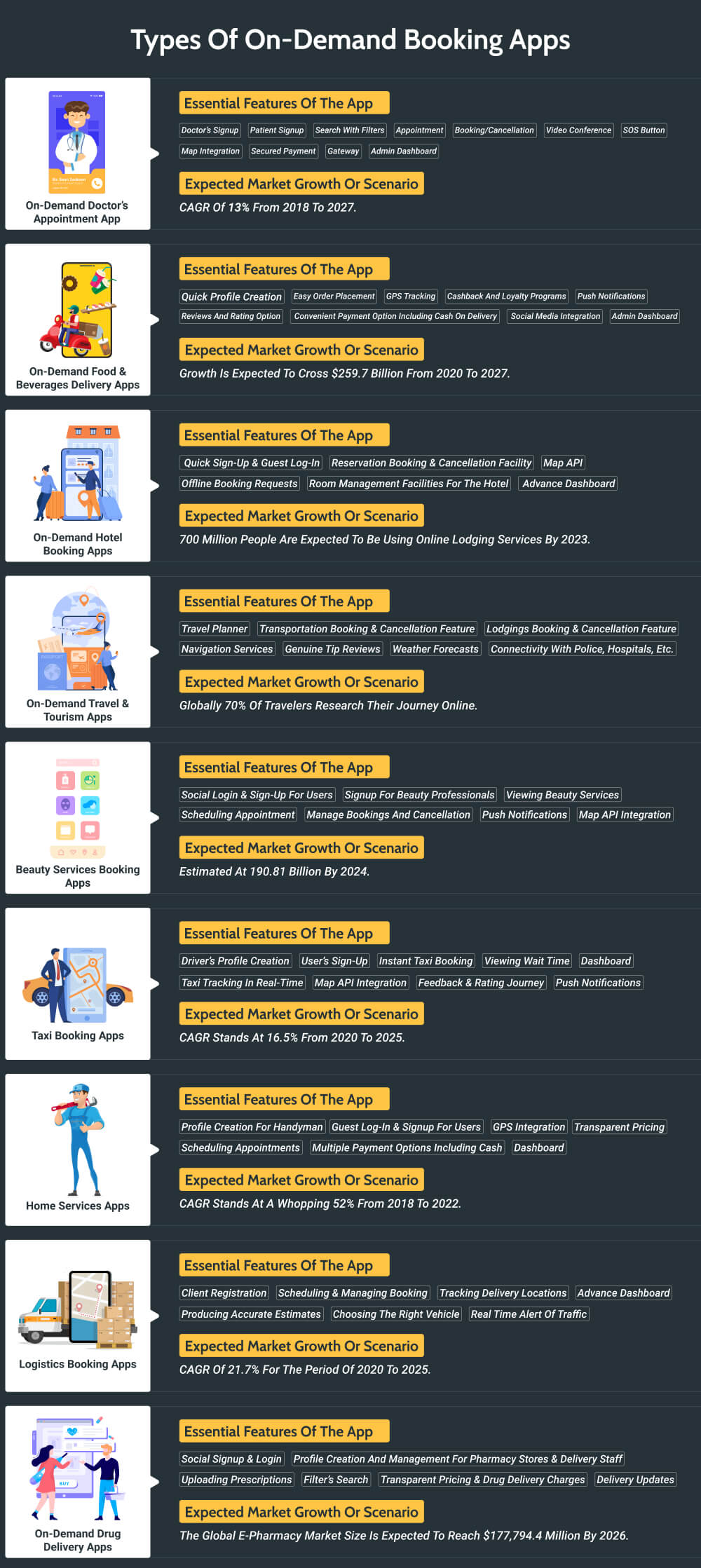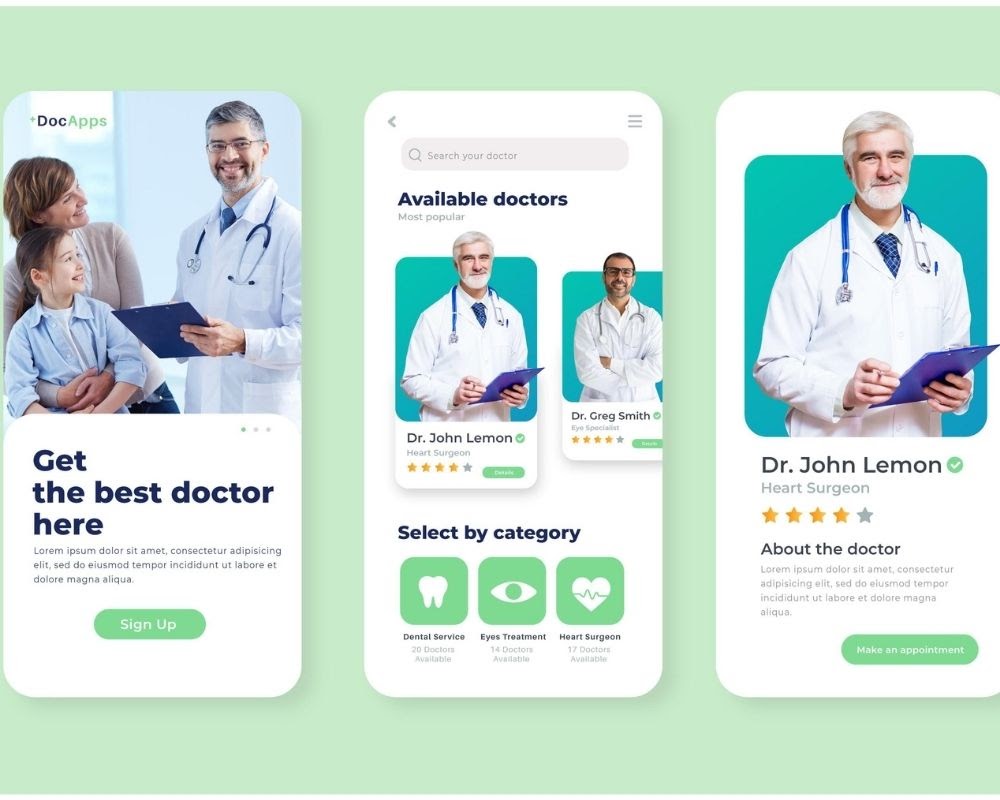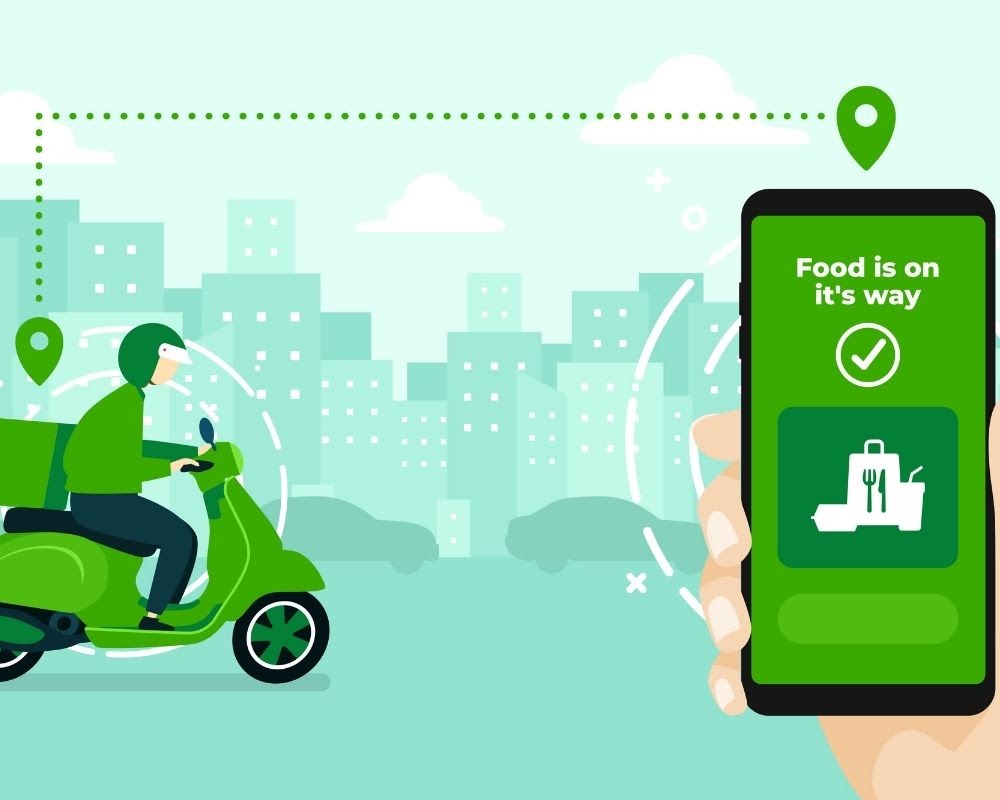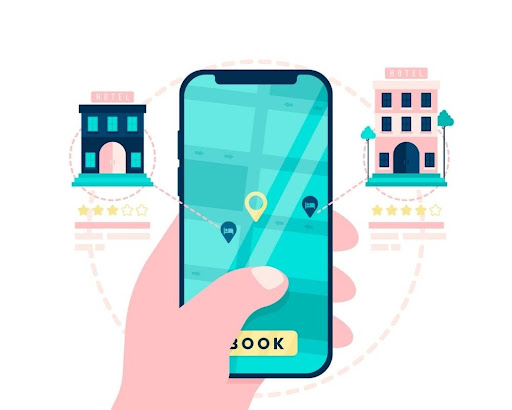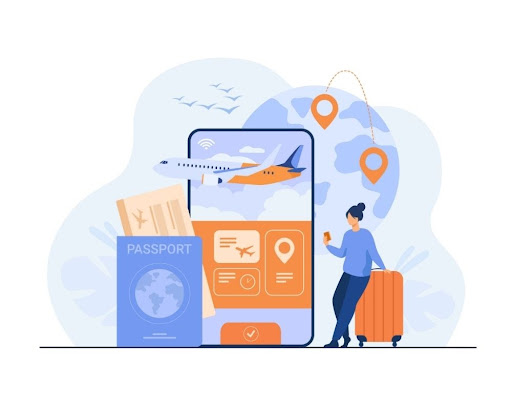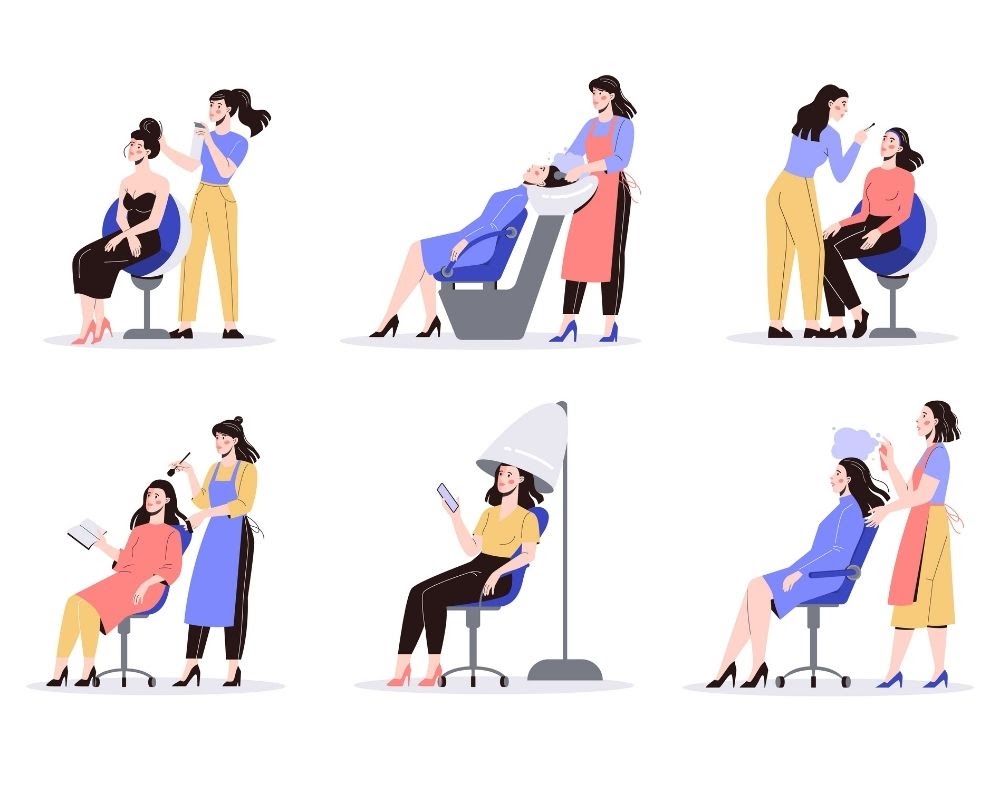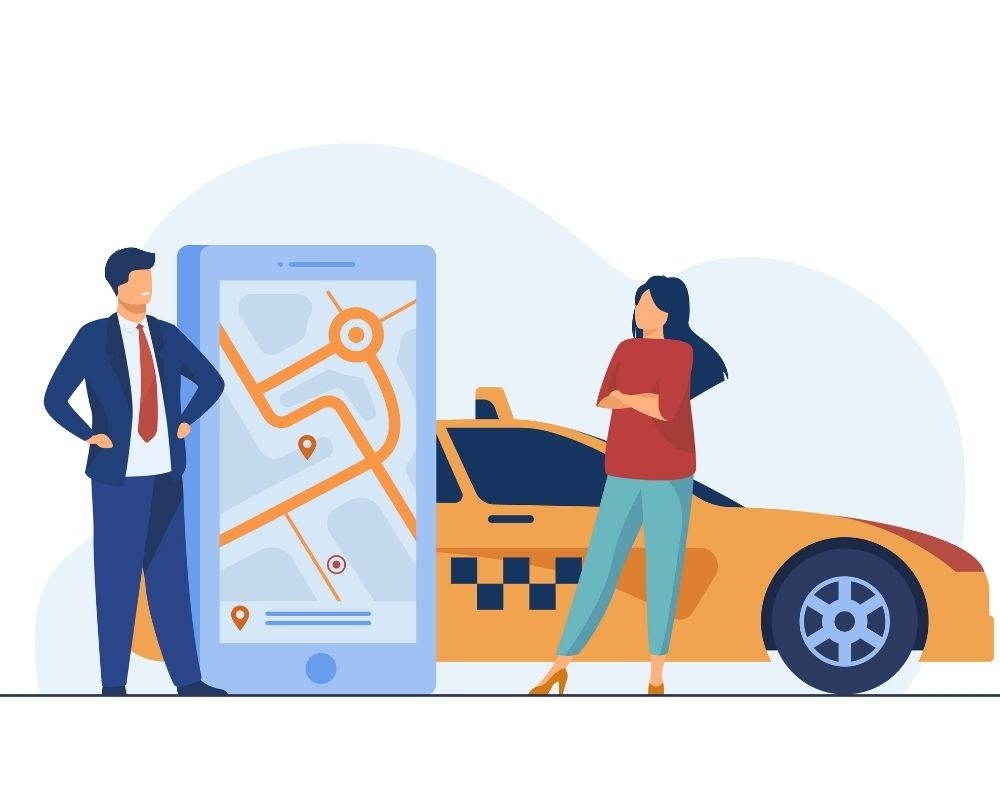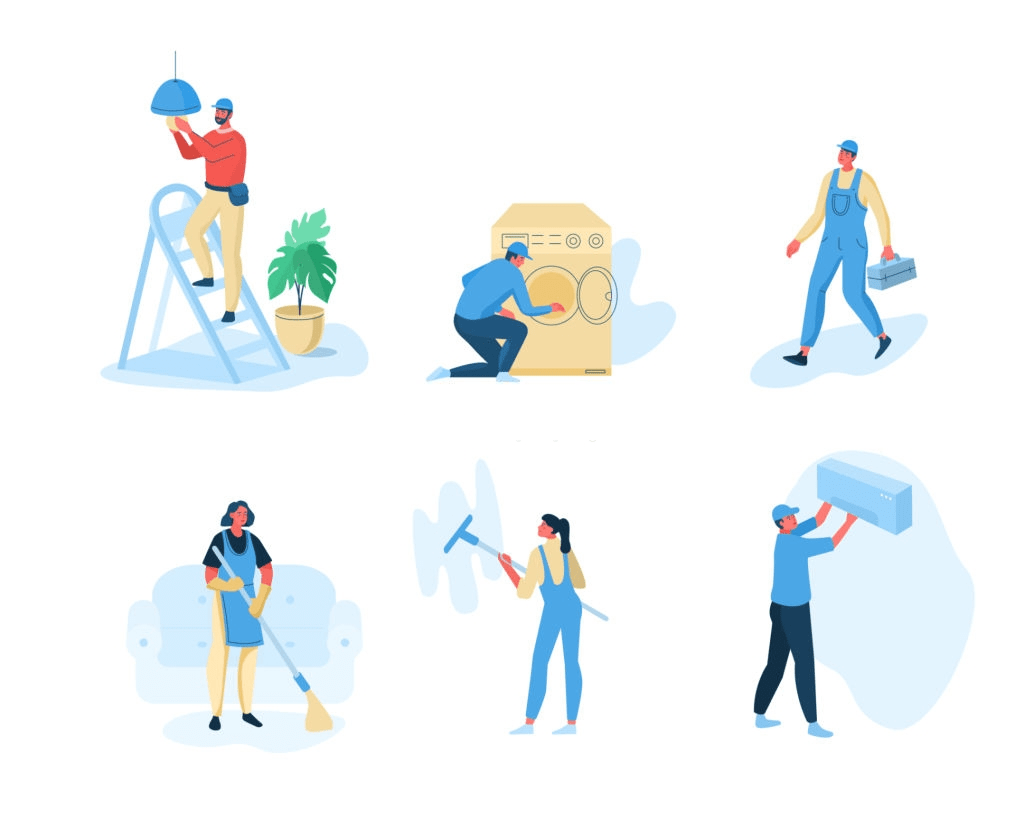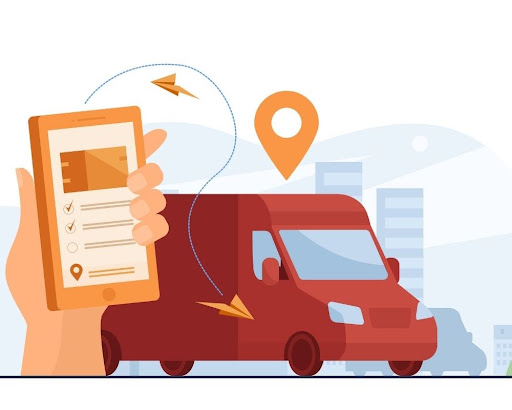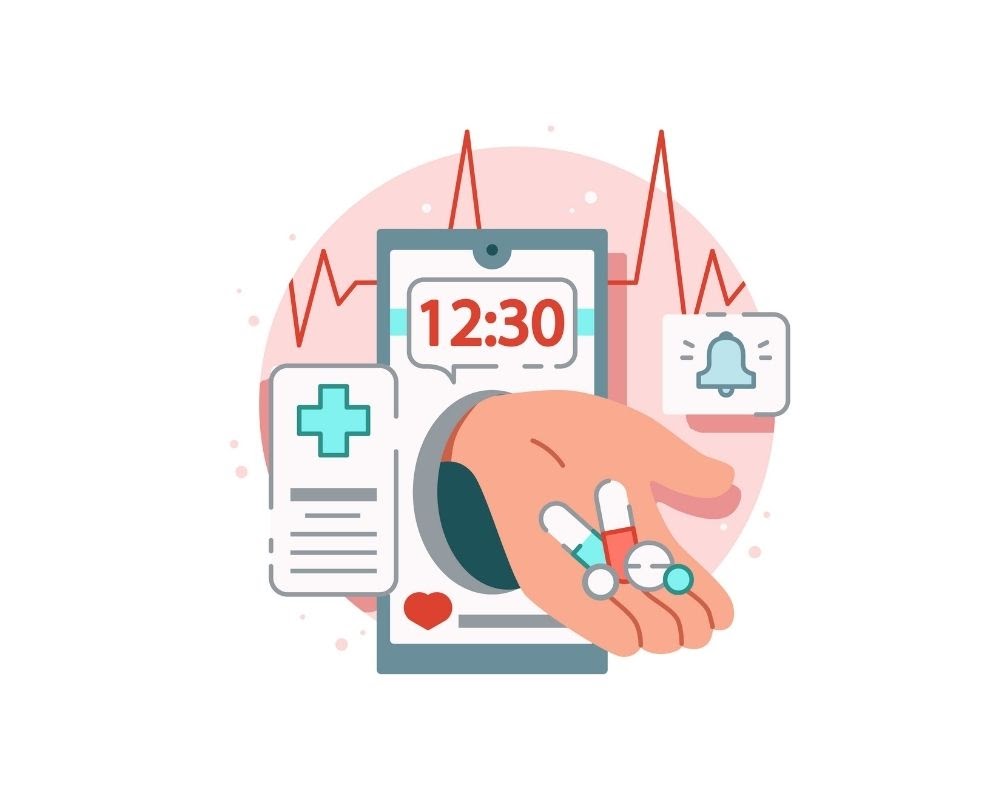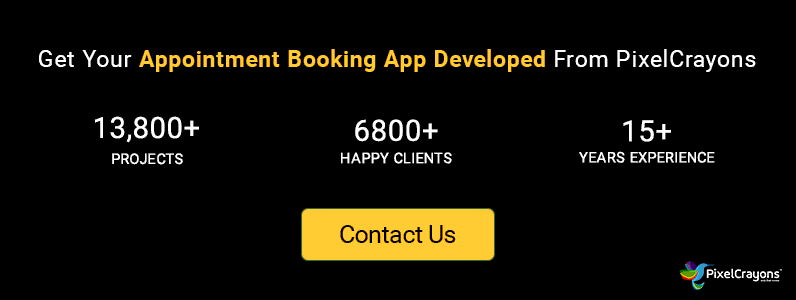What is your favorite on-demand app? Is it Uber, or are you into food and love browsing GrubHub? On-demand apps are leading the world by storm. Any service that requires immediate response from the industry verticals, on-demand apps have become the prime solution. Diverse industry verticals are using on-demand appointment apps to cater to clients effortlessly and bring greater transparency in the bookings.
While the CORONA Pandemic has negatively impacted many industry verticals, booking apps seem relatively positive and influencing. We are witnessing the rise of booking apps even in developing nations like India, Pakistan, etc., where such apps were earlier failing to strive.
If you are thinking of developing an appointment booking app, then the time is perfect. The following stats depict why it is the best time to invest in booking apps.
- Online travel booking was expected at $817 billion in the year 2020 alone, as per Condor.
- The on-demand market revenue is to reach $335 billion by 2025 in the United States alone, as per Magneto Stats.
- According to PR News Wire, the on-demand food delivery services have a CAGR of 7% for 2020 to 2024 and are to reach $44.23 billion.
- Markets & Markets reports the growth of pharmaceuticals on-demand drug delivery at 2015.3 billion, by 2025.
Whatever the industry you choose, on-demand booking apps are in full bloom and driving businesses to success. Fortunately, there are diverse options when deciding to invest in an on-demand booking app.
Table of Contents
Look at the Infographic Below Depicting the Significant Types of On-Demand Booking Apps:
Trending On-Demand Appointment Scheduling/Booking Apps
1. Doctor’s Appointment Apps
A doctor appointment app lets users connect with medical professionals via mobile or web. Patients and those seeking medical services can either consult the doctor online or book a physical appointment with them.
At PixelCrayons, we suggest integrating video consultation in the doctor appointment app. Going with the demand, you can also add the ‘book my vaccine’ section in a doctor appointment app.
According to Insight Partners, the doctor’s appointment app in the healthcare industry is expected to grow at a CAGR of 13% from 2018 – 2027.
Essential features of the Doctor’s Appointment App:
- Doctor’s Signup
- Patient Signup
- Search with filters
- Appointment Booking/Cancellation
- Video conference
- SOS button
- Map integration
- Secured Payment Gateway
- Admin Dashboard
Cost of Creating Doctor’s Appointment app: $30,000 to $50,000
Trending Doctor’s Appointment apps: Practo, ZocDoc, Health Tap, etc.
2. Online Food & Beverage Delivering Apps
Well, they might not appear as a booking app, but with a growth expectation of $259.7 billion from 2020 to 2027, they are worthy of mention. These apps allow users to buy food and beverages from local restaurants from the comet of homes. Food and drinks apps follow an uber business model.
You will have to connect with local restaurants to sign up to sell food items via your app. While you can do a part of the profit on the commission business, the significant chunk of profit depends upon the delivery services.
Essential Features of Food & Beverages Delivery App
- Quick profile creation
- Easy order placement
- GPS Tracking
- Cashback and Loyalty programs
- Push Notifications
- Reviews and Rating option
- Convenient Payment option including Cash on delivery
- Social Media Integration
- Admin Dashboard
Cost of creating Food & Beverages Delivery app: $16,000 to $25,000
Trending food delivery apps: DoorDash, GrubHub, goPuff, etc.
3. Hotel Booking Apps
These apps let travelers, tourists, and those looking for compatible lodging find hotels, motels, etc., with affordable rooms in seconds. As per Condor Ferries, 700 million people will be booking their lodging services online by 2023.
Essential Features of Hotel Booking Apps:
- Quick Sign-up & Guest login
- Reservation booking & Cancellation facility
- Map API integration
- Offline booking requests
- Room Management facilities for the hotel administrative department
- Advance Dashboard
- Multi-Currency support
- Secured Payment System
Cost of creating Hotel Booking apps: $20,000 to $30,000
Trending Hotel Booking apps: Expedia, Hotel Tonight, LateRooms, etc.
4. Travel & Tourism Apps
Unlike hotel booking apps dedicated to lodging services, tourism apps offer many additional features to the users. Right from booking flight tickets, taxis, hotel rooms, dining, and many more.
Tourism apps are more complex and require a significantly higher investment, owing to multiple functionalities. Worldwide, 70% of travelers research their journey online.
Essential Features of Travel & Tourism App
- Travel Planner
- Transportation booking & cancellation feature
- Lodgings booking & cancellation feature
- Navigation services
- Genuine tip reviews
- Weather forecasts
- Connectivity with police, hospitals, etc.
- SOS button
- Push Notifications
- Secured Payment Gateway
Cost of creating Travel & Tourism app: $30,000 to $40,000
Trending Travel & Tourism apps: Airbnb, Skyscanner, TripIt, etc.
5. Beauty Services Booking Apps
The Pandemic has led to more people trying beauty services from the comfort of homes. Such apps also allow salons to manage the influx of clients effortlessly. Beauty services apps are based on different models, and the most successful one requires creating a common platform for local salons and those offering similar services.
It is much like creating an uber model of business for beauty services. The global revenue of Spa & beauty salons will cross 190.81 billion by 2024. The pandemic scenario indicates a significant chunk of it will be digitized rapidly.
Essential Features of Beauty Services Booking App
- Social login & Signup for users
- Signup for beauty professionals
- Viewing beauty services
- Scheduling Appointment
- Manage bookings and cancellation
- Push notifications
- Map API integration
- Payment Gateway Integration
- Dashboard Management
Cost of creating Beauty services booking app: $16,000 to $25,000
Trending Beauty services booking app: Vagaro, MySalon, Shedul, etc.
6. Taxi Booking Apps
This one needs no explanation. You have it on your smartphone, and even if not, you are well acquainted with it. What’s worth discussing: Contrary to the popular belief that the taxi services apps market is saturated, its CAGR stands at a whopping 16.5 percent and is expected to reach $12,6 521 Million by 2025.
Essential Features of Taxi Booking Apps
- Driver’s Profile Creation
- User’s Sign Up
- Instant taxi booking
- Viewing wait time
- Taxi tracking in real-time
- Map API integration
- Feedback & Rating journey
- Flexible option for payment, including Cash.
- Push Notifications
- Dashboard
Cost of creating Taxi booking app: $25,000 to $35,000
Trending Taxi Booking apps: Uber, Lyftt, Easy Taxi, etc.
7. Home Services App
Maintaining a home is always tricky. Once in a while, you need to connect with a plumber, electrician, painter, and a series of handypersons. Home services apps act as an uber for connecting with the local handyman.
As per business wire, the global on-demand home services market size holds a stunning compound annual growth rate of 52% from 2018 to 2022. The value is to reach a massive 869.95 billion in this period.
Essential Features of Home Services App
- Profile creation for handyman
- Guest login & Signup for users
- GPS integration
- Transparent pricing
- Scheduling appointments
- Multiple Payment options including Cash
- Dashboard
Cost of creating Home Services app: $16,000 to $25,000
Trending Home Services app: Handy, TaskRabbit, Porch, etc.
8. Logistics Booking App
When looking forward to shifting from one site or one city to another, logistics booking apps have become the ultimate solution for people. Logistics booking apps help users learn the overall cost, available trucks & vehicles, booking vehicles, and paying for the services.
According to Markets and Markets, the Logistics Booking app has a compound annual growth rate of 21.7% from 2020 to 2025. The numeral value indicates the possibility of nearly three times growth from 17.4 billion to 46.5 billion in the period.
Essential Features of Logistic Booking App
- Client registration
- Scheduling & managing booking
- Tracking delivery locations
- Producing accurate estimates
- Choosing the right vehicle
- Real-time alert of traffic
- Multiple Payment Gateway
- Advance Dashboard
Cost of creating Logistics booking app: $25,000 to $35,000
Trending Logistics app: BooksyBiz, TruckGuru, etc.
9. On-demand Drug Delivery Apps
There are tons of medical health issues that require medication urgently. On-demand drug delivery apps allow the user to get hold of medicines instantly and at an affordable budget. You can go for an uber-like model enabling local pharmacies to sell via your delivery app.
However, the profit is comparatively low in such apps and requires success and popularity from a mass audience. On the upside, Fortune Business Insights have estimated the global e-pharmacy market size is expected to stand at $177,794.4 million by 2026.
Essential Features of Medicine Delivery App
- Social Signup & Guest Login
- Profile creation and management for pharmacy stores & delivery staff
- Uploading prescriptions
- Filter’s search
- Transparent pricing & drug delivery charges
- Secured and diverse payment options, including Cash on delivery option.
- Delivery updates
- GPS integration
- Advance Dashboard
Cost of creating Drug Delivery app: $16,000 to $30,000
Trending Drug Delivery app: Netmeds, Medplus Mart, Doximity, etc.
That was all about the top on-demand app ideas that are promising for a flourishing business. Before you try creating a booking app, it is essential to look at the critical features of the booking app.
While I have given you a glimpse of the must-have features for each type of on-demand app, it is proactive to have more thorough knowledge about their importance.
Analyzing them will help you realize whether you want to go for a full-fledged mobile app or an MVP of the product.
An appointment booking app development company can guide you with more industry-centric features depending upon the target audience. For the sake of clarity, I will be discussing the general characteristics of the on-demand appointment booking app.
Here are the Standard Features of an On-Demand Appointment Scheduling/Booking App
Quick Signup/Guest Login to Ensure Speedy Services
Unlike an eCommerce app or other apps, on-demand apps provide fast and instant assistance to the users. Our experienced developers suggest integrating Signup via social media profiles, including Facebook, Instagram, etc.
It proves as an enhanced marketing strategy for the app’s success. Do you expect a user to invest a minute in signing up when they are in a hurry to book a cab? We all know the answer, so it is preferable to integrate guest login in all kinds of on-demand apps.
The signup page must be crisp, asking what is necessary. You can offer a detailed signup page to the user once they become a regular app user.
Integrate Calendar with the Service-Centric Features
A simple calendar customized according to the services is necessary to enhance the user experience of the app. For example, most flight booking apps display the Calendar with the minimum price tickets for the day.
Calendars are not necessary for those on-demand apps that offer instant services like food and drug delivery apps.
Advance Booking System to Offer a Smooth User Experience
The booking system must provide the users with multiple filters based on pricing, nearby locations, services, etc. The coding team must develop the search system in a way that naturally complements the local keywords.
The booking system needs form integrations depending on the type of app. For example, a delivery needs an address mainly while a consultation app will ask any queries regarding the patient’s personal and earlier health conditions.
Taxi booking apps and other similar apps need to offer real-time booking features to connect with the best services in no time.
Map API integration to Let the Users Travel with Ease
Google Map Integration allows the app users to travel to their destination with convenience. They are a handy tool in delivery apps and prove beneficial in appointment apps requiring users to travel.
Secured Payment Gateway Accepting Popular Payment Options
Choose a compatible Payment Gateway for the app. The Payment Gateway must accept all major kinds of cards, e-wallets, online/digital/net banking processes, etc. The idea is to look for a smooth checkout for the users that enhances the rate of conversions.
Also, inspect the standard practices followed by the payment gateway to secure the banking transaction. SSL certifications, SST, Payment card industry compliance, are some of the prominent features of a standard payment gateway.
PayPal, Amazon Pay, and Stripe are renowned for offering maximum security to banking transactions. The usual charges of Payment gateway vary anywhere between 2% to 5%.
Feedback and Rating Section to Enhance App’s Engaging Power
According to eMarketer and Bizrates, 98% of users read reviews and ratings before investing online. Besides boosting business, the feedback and rating section offers a shared space where users with similar interests connect.
Feedback and ratings prove beneficial for the business and offer clear insights into areas that need improvements. Moreover, if your app idea is monetizing under the uber business model, then the rating section becomes a crucial and must-have section for the enterprise.
Advance Dashboard Letting You Manage the Entire App
This section of the app is only accessible to the app owner and its team of managers. From here, you can view and handle every feature and offer on the app. An advanced dashboard also provides reports creation that helps to analyze the success of the app.
Hire app developers in India that customize the dashboard according to your business needs.
How to Create Your On-Demand App?
Step-1: Research Your App idea
Each of the on-demand app ideas has several competitors. You can use your competitor’s app to find out what they are offering and what extra you can contribute to woo clients.
For each app idea, I have listed the top trending examples in this article. You can download those apps to investigate their functionalities and performance of those apps.
Step-2: Decide the App Features
Take your pen and notebook and write down all the essential features you can think of. Along with the basic features, your app needs to offer exclusive ones impressing the users. For example, a drug delivery app can provide reminders to the users about the drug dosage.
Step-3: Decide the Launching Platform of the App
While Android offers you a larger target audience, iOS app users are more generous with in-app purchases. Cross-platform apps are the ultimate solution for reaching both.
Did you know: The worldwide popular on-demand taxi booking app “Uber” is a cross-platform app?
Step-4: Research Your Monetization Strategy
On-demand apps are based on multiple monetization strategies. The prominent ones include the uber-model, commission-based model, freemium model, etc.
The monetization strategy largely depends on the chosen idea, competitors’ approach, and the current market scenario.
Step-5: Finalize the Technical Aspects
A mobile app works on the coordination of the front end and the back end. Once you created the wireframe (systematic representation of each screen) of the app, you need to design an advanced UI for the front end.
The back end of the app needs to perform accurately based on the user’s interaction. Hire mobile app developers that create a powerful backend resonating with the app’s front end.
Step-6: Code, Test, & Repeat
The hired professionals need to write code, test it and repeat the process until bugs and errors get eliminated from the app. It ensures the creation of a smooth-running, technically advanced mobile app that successfully impresses the user.
Final Words
Mobile applications development companies in India transform your on-demand app idea into digital reality at an affordable budget. Connect with us for a free and detailed discussion of the concept in your mind.

